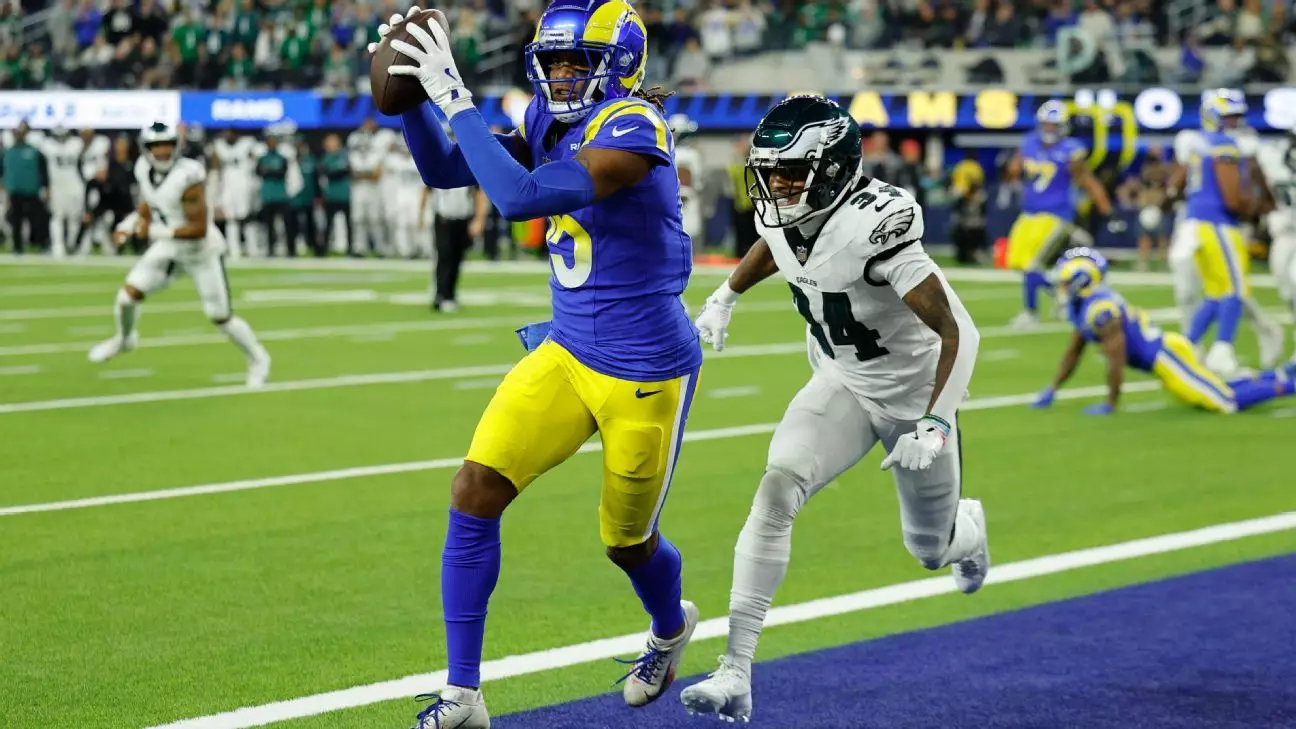In a shocking turn of events, Los Angeles Rams wide receiver Demarcus Robinson was arrested on suspicion of driving under the influence (DUI) early on a Monday morning. The incident occurred roughly 5:13 a.m. in Woodland Hills, California, following a weekend game where Robinson caught a touchdown. His arrest was not an isolated mishap; rather, it raised questions about the responsibilities of athletes as public figures and the consequences of their actions, both on and off the field. The sheer speed—over 100 mph—at which Robinson was driving introduces a layer of concern about potential harm not only to himself but also to innocent bystanders and fellow drivers.
The Response from the Rams Organization
Coach Sean McVay came forth with a rather measured response to the situation. He assured the media that no immediate suspension would be imposed on Robinson for the upcoming game against the New Orleans Saints, indicating a belief in letting the legal process unfold. This stance reflects a delicate balance that NFL teams must navigate; they must enforce accountability while simultaneously supporting their players. McVay articulated that Robinson understands the gravity of his misstep, stating that it’s essential to recognize how fortunate it was that no one was injured during the incident.
Robinson’s post-arrest comments shed light on his internal struggle and commitment to accountability. He expressed remorse and concern for the negative image his actions cast upon the team. By communicating openly with his teammates about the arrest in a meeting facilitated by McVay, Robinson demonstrated an awareness of his role as a leader and the influence he holds within the organization. This level of transparency not only aids in his own redemption arc but also serves as a learning opportunity for the entire roster.
The Ramsey incident is symptomatic of a larger issue within professional sports: the scrutiny athletes face regarding their behavior outside the playing field. The combination of fame, fortune, and the stressors inherent in high-pressure environments often leads some players to make poor decisions. As public figures, their actions can set a precedent—good or bad—for young fans who look up to them. The responsibility of athletes extends beyond the gridiron; it encompasses an obligation to act in a manner that reflects well on their teams and the sports as a whole.
Robinson’s incident serves as a realization that each action has repercussions, especially when one is perceived as a leader. His wish for teammates to learn from his misjudgment underscores the importance of education and dialogue within locker rooms. These discussions can foster a culture of accountability and mutual support, reducing the likelihood of similar incidents occurring in the future.
The Role of the NFL and League Accountability
One cannot overlook the NFL’s responsibility in addressing player conduct, particularly in cases involving DUI charges. While internal disciplinary measures are often subject to the league’s investigations, the broader implications for the sport must be part of this discourse. The league has, in the past, faced criticism for inconsistency in how it manages player conduct. A standardized approach to discipline and player education on these matters can pave the way for a safer environment not just for players but for the community at large.
As Robinson awaits guidance on the legal proceedings and any potential penalties from the league, the case stands as a reminder that the road to redemption is not just an individual journey; it requires collective effort. It calls for organizations to reinforce their commitment to player wellness—not merely in terms of physical health but also regarding moral and ethical behavior.
Demarcus Robinson’s DUI arrest is not just a tale of poor decision-making; it reflects the complexities of being a professional athlete amidst modern societal pressures. As the Rams gear up for their next game, the focus must extend not just to athletic performance but also to cultivating an environment of growth and accountability. This incident can spur a necessary dialogue within all sports teams to ensure every player feels the weight of responsibility that comes with their position—both on the field and off.


Leave a Reply